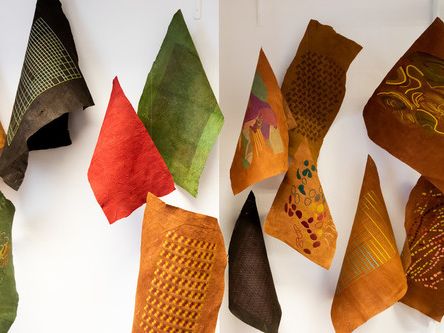Thank you to all centres who replied to the recent Department for Education (DfE) consultation on the future of Level 3 qualifications. A further call for evidence from the DfE is still open regarding Level 2 qualifications and we encourage as many of you as possible to feed into this by 14 February. We are delighted to hear the case being made so robustly for high-quality vocational alternatives to GCSEs, A Levels and T Levels.
UAL Awarding Body has submitted constructive replies and evidence to these consultations about the future funding of vocational qualifications in England. We are also engaging proactively behind the scenes with the colleagues across, education, the creative sectors and the Federation of Awarding Bodies. Several of you have asked for details of our position:
Who we are
UAL Awarding Body is a successful outward looking awarding organisation that works with approximately 200 centres across the UK. We are part of a University which is in the top 2 in the world for Art and Design (QS World University Rankings 2020). Our 6 exciting colleges and innovative Institutes mean we speak from a position of expertise in creativity and education at HE level and at FE level through the Foundation Art & Design. We have submitted significant evidence and insights on the following themes.
Academic or technical?
DfE is proposing a rationalised system from 2024 in which academic A Levels and technical T Levels offer very distinct routes from the age of 16. We are very pleased that there is acknowledgement that some high-quality creative qualifications, especially those preparing for entry to leading HE experiences, should continue to attract funding alongside these. We are keen, however, that DfE apply appropriate and inclusive criteria for such decisions that maintain successful and high-quality routes such as those offered by UAL Awarding Body qualifications. For example, these must extend beyond dance and music to the full range of creative disciplines.
Owing to their stated purposes and progression data, UAL Awarding Body qualifications offer a valuable alternative to A Levels in the academic side of the DfE future schema. While viewing the education system as having exclusively academic or technical routes may not be the most accurate representation of learner experiences, we believe this does closely describe the role of our qualifications in the system.
Size of qualifications
DfE has sought views on whether to fund various sizes of qualifications. We have explained the value of the range of options available in this area – from small qualifications focused on performance skills, to those taken alongside A Levels, or in the case of Foundation Art and Design usually after other qualifications.
We have also urgently drawn attention to large Level 3 Diploma and Extended qualifications which are equivalent to 2 or 3 A Levels as a route of great value. These successfully combine technical and academic learning and content, enabling students to practically apply their knowledge and skills in a way that better prepares them for a portfolio career. This type of qualification enables students to focus on a broad sector subject area from the age of 16, but without committing to a specific role before they are ready or where their career will require graduate level skills.
Distinct purpose to T Levels
UAL Awarding Body qualifications serve a different purpose to T Levels at Level 3. T Levels are primarily a route to occupational competence in appropriate technical roles. UAL Awarding Body Level 3 qualifications are primarily a vehicle supporting progression to HE or further study. While this is simplification, and many learners successfully cross these boundaries, this is the rationale behind these routes and the dominant outcome from our data.
Specific technically skilled roles do exist in the creative industries and we believe T Levels will fill a skills gaps where current provision and market behaviours have not met those specialised skills needs. T Levels should not, however, be distorted to become all things to all learners as this would dilute their value and needlessly damage existing successful provision.
Creative industries and workers
Creative Industries in the UK are dominated by graduate recruitment as many of the roles required require a broad and deep mixture of cultural knowledge, flexibility and problem-solving skills. This is because a high proportion of employment in the creative industries comes from self-employment or Small or Medium sized Enterprises in which work is commissioned or project-driven. Creative workers often must be capable of multiple roles and skills rather than one specific technical competence. Many blend complex cognitive and technical skills developed over the course of Level 3, Higher Education and portfolio careers in which skills are continually self-developed to adapt to new clients, technologies and entrepreneurial opportunities. Of course, in this thriving sector there are many different routes to success, but this is the broad situation.
Level 2 qualifications
The purpose of Level 2 qualifications varies across vocations and subjects. For some it may result in direct entry to employment or an Apprenticeship. In the creative subjects, however, this level is very much focused on re-engaging learners for whom GCSE has not supplied the requisite learning or skills. UAL Awarding Body Level 2 qualifications primarily prepare students for progression to Level 3 qualifications, and this is supported by the data and feedback we receive from our centres. Level 2 qualifications are an invaluable tool in transforming the experience many learners have of education and in many cases greatly improve engagement and potential. We urge that any future review of Level 2 funding should recognise the high-quality and highly valuable impact of these qualifications.
Disadvantaging learners
Consideration should be given to the unintended consequences of defunding popular high-quality options for students at Level 2 and Level 3. Many Level 2 and Level 3 qualifications offer valuable routes for students despite characteristics such as socio-economic disadvantage, ethnicity and SEND. While there remains an attainment gap for us to all to continue to work on, we believe this is less pronounced than would be the case were all students given the choice only between A Levels and T Levels at age 16.
Level 4 and Level 5 qualifications
We are enthusiastic about high-quality qualifications at these levels in the creative sector. They can offer a valuable route to careers where employment-ready competence at Level 3 is unlikely, but neither is a degree the best route. Our Level 4 Professional Diplomas are already receiving excellent feedback from centres and we are keen to develop more options in the area.
We are broadly supportive of the possibility of these qualifications being endorsed by the Institute for Apprenticeships and Technical Education (IfATE) where appropriate – although we believe this should be an opt-in model so as to avoid barriers to innovation and flexibility to meet demand from learners and employers.
A key barrier to further developments in this area is the limited funding regime which excludes many qualifications and deters learners from all but a limited range of HNCs and HNDs. We support revisiting and democratising that model to create an even playing field for all Level 4 and Level 5 qualifications.
Timeframe and next steps
We expect DfE to take some time to consider the implications of the Level 3 consultation and the Level 2 call for evidence before announcing a plan of action. DfE have indicated that they wish to see a reformed and streamlined funding system by Autumn 2024.
We echo feedback from many in the sector that this is a challenging timeframe that needlessly introduces risk of failure. Several T Level routes will still be in initial years of deployment and Covid-19 has created seismic shifts in our economic, educational and working practices. We urge government to extend its timetable for reform so that changes can be adopted carefully so as to avoid ‘cliff-edges’ for learners, centres and awarding organisations. The broad aim of ensuring high-quality routes across the educations system which deliver for learners is to be fully supported, but this is more likely to be achieved if the sector is given time to adopt changes and ensure quality outcomes for learners.
The case for continued funding for UAL Awarding Body Level 2 and Level 3 qualifications is clear. We stand ready to review our portfolio, innovate and meet any new requirements from DfE if required – while holding on to the creative and enabling approach that defines our ethos.





